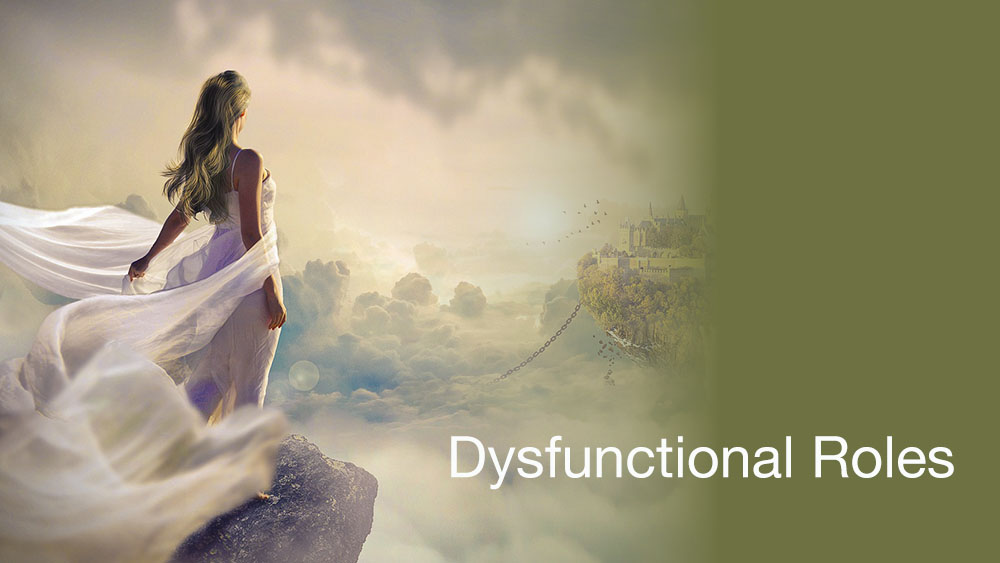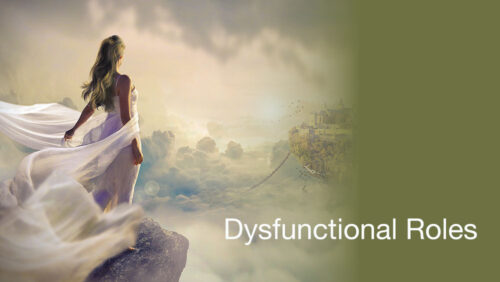
In troubled families, abuse and neglect are permitted; it’s the talking about them that is forbidden.
—unknown
Children’s Roles in Dysfunctional Families
For some of you that are reading this who do not know me, I will start out by saying I am not a therapist or psychologist. What I am, is a researcher. I have written my book to help others see what can happen in toxic families. I appreciate those who have read my book, My Courage to Tell.
If you are a child from a dysfunctional family, you might recognize these different roles that are given to the children: Invisible Child; Golden Child; and, Scapegoat. I have also read The Caretaker, The Clown and The Manipulator. Different psychologists talk about these roles in different ways, so, I will try and put it all together.
I think I’ve been given three roles in different parts of my life. First, I was given the role of The Invisible Child. Then after I got some help from a teacher at age nine, I graduated to The Golden Child. I am a singer; a successful entrepreneur; and a caregiver. (Perhaps I’m also The Caregiver as I took care of my father when he was ill).
My final role as an adult was a promotion to The Scapegoat (again if you read my story you will know what happened).
The Dysfunctional Family
“The typical adult from a narcissistic family is filled with unacknowledged anger, feels like a hollow person, feels inadequate and defective, suffers from periodic anxiety and depression, and has no clue about how he or she got that way.” —Pressman and Pressman, The Narcissistic Family
One of the first things my psychologist told me on our first visit, is that I had already figured out what I experienced was abuse. She had said that many don’t even know what they have experienced was abuse… and she helped to guide me further to see that it was, or is.
Many of us are gaslit as children.
That said, children of dysfunctional parenting have a hard time figuring out what is wrong and why they are feeling bad. Empty. It is because toxic families will deny anything is wrong in the first place.
Toxic parents block emotional access!
Children from dysfunctional families learn very early that they are not important to their parents, and feel invisible. This is highly toxic. Children also learn to live with those dysfunctional rules. With all those rules, children also will allow toxic parents to use and abuse them — as there are no boundaries.
Here are some roles we are given from toxic parents:
1. The Invisible Child (The Lost Child)
This child will have a lot of neglect. They are what I’d say… forgotten. They are left feeling that they do not matter. They feel like they are an inconvenience.
This Invisible Child will do anything to get their parents’ attention and get noticed. They may take on The Clown role to get attention. They are the lost child seeking attention never feeling worthy. They will spend a lot of time on their own and maybe very reclusive.
2. The Golden Child
This child brings much glory into the family. They might be the star athlete. Or perhaps they are the smart student or the beauty queen. They usually will be treated by toxic parents as being more special than the other children. They are the ones that can usually talk to the parents.
Later on in life, if the Golden Child doesn’t like their role and chooses to challenge the toxic parents on any behaviour, they will not usually get the reaction they think. They will most likely get ostracized. The toxic parent will not like admitting any wrong-doing.
The Golden Child will likely be the one that will care for ageing parents; other siblings may have distanced themselves. This is a big burden for The Golden Child, but remember, they have been “chosen” by the toxic parent.
One last thing: The Golden Child may be at risk of developing narcissism themselves. “The Manipulator” role, is the child who will control and influence others in the family. They may be the bully in the family.
3. The Scapegoat
The Scapegoat is a threat. The Scapegoat has figured everyone out. They have figured out all the bullsh*t. They get it. They are more psychologically in tune. They are pretty smart and are the black sheep of the family.
The Scapegoat will get isolated and are usually blamed. “They are the cause” of everyone’s suffering.
It is very hard to be a Scapegoat. It is not easy to be isolated. Please read my blog post on “The Scapegoat”.
What are we to do?
What I have learned from many of these roles, is that love from the dysfunctional parent is conditional. I will love you if… And that hurts.
So, it is time for you to start working on self-love and know:
- If you feel negative feelings and have an inner critic, you can choose to love that little child within. Hopefully, you can do this with a therapist.
- It’s not your fault. It’s not your fault. It’s not your fault.
- You are not alone.
- You can choose to give yourself a chance and heal yourself. You are worth it!
There are so many great resources out today. You can begin to look at ways to heal yourself. Healing within is the most important thing in life we can do. In my book, My Courage to Tell, I have talked about how I met and healed my inner child.
Please Remember: if you do ask for truth and respect from parents who deny your truth, you may not get a positive reaction. But learning to say NO, is important in honouring our true authentic selves.
Blessings. Sources:
1. https://www.learning-mind.com/dysfunctional-family-roles/
2. https://www.psychologytoday.com/ca/blog/the-legacy-distorted-love/201105/the-narcissistic-family-tree
3. YouTube: Dr. Ramani, Dysfunctional Families


